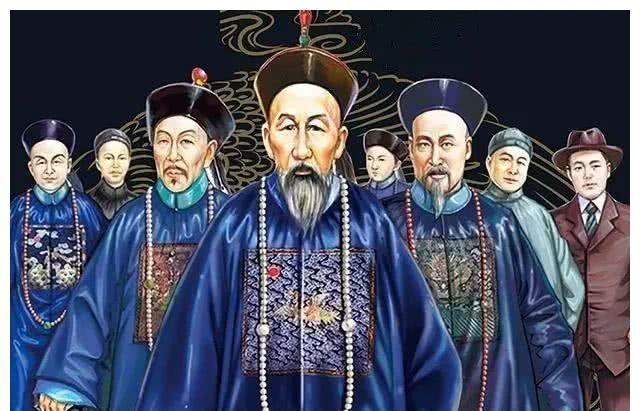The Taiping Rebellion was the last large-scale peasant uprising in the history of China's feudal dynasty, and this peasant uprising can be said to be the culmination of the elements of ancient peasant uprisings. China's peasant revolts in ancient Chinese history were either aided by religion, natural disasters, or foreign aggression. From the beginning of his mission, Hong Xiuquan was committed to demonizing the Manchu qing nobility with religion. The Qing dynasty royal family and Manchu qing nobles have always been the primary targets of Hong Xiuquan's dedication to attack, especially the Eight Banners Army, which contributed the most to the founding of the Qing Dynasty.

In the south, the Situation of the Main Battlefield, the Qing Dynasty remained in Nanjing, including the Eight Banner Army and the Green Battalion Army transferred from the north, most of which were annihilated and suffered heavy losses. Manchu generals were defeated or killed or deposed. The more famous ones were Sai Shang'a, Dahong'a, Ba Qingde, Xiang Hou, Hechun, Ulantai, Dexing'a, and others, and the Taiping Heavenly Kingdom army contacted by the Twist Army even took the monk Greenqin under his horse.
Because of the collapse of national defense and the inability of the standing army to undertake the task of internal repression, Emperor Tongzhi and other emperors reluctantly appointed Han landlord armies: the Xiang Army and the Huai Army. The four famous ministers of ZTE, Hu Linyi, Zuo Zongtang, Zeng Guofan, and Li Hongzhang, who were local powerful factions, took advantage of the rise.
These local power factions first seized military and administrative power at the local level, controlled important positions such as governors and inspectors, and gradually squeezed out the Manchu faction's magnates. However, this process did not go well, and it was accompanied by a tug-of-war with the Taiping Heavenly Kingdom. Among them, there was a situation in which Zeng Guofan dived and Zuo Zongtang wanted to be arrested and sent to Beijing, but the danger was eventually eliminated. After acquiring local power and forming a large and complex network of interests, it gradually infiltrates and expands into the central power.
According to statistics, from 1865 to 1866, among the 23 governors of the Qing Dynasty, there were 17 people in the Xiang Army and the Huai Army Group. Secondly, the Taiping Rebellion broke the situation of the Qing Dynasty army being a state-owned military system, and formed a pattern of soldiers as generals, which lasted until the Republic of China, and formed bad consequences such as warlords.
Starting with the control of the army, and then taking advantage of the opportunity of the foreign affairs movement, the acquisition and construction of the military industry and the acquisition of naval equipment and finances. In particular, Li Hongzhang's Huai army occupied the most. Economically, the Xiang and Huai armies wantonly embezzled the treasury of the Taiping Heavenly Kingdom, indiscriminately collected taxes, plundered land, and formed the vicious habit of private appropriation by military commanders. For example, Li Hongzhang has 500,000 mu of land in his hometown of Lujiang Hefei, and his brother can even collect bronzes from the Warring States period.
Li Hongzhang opened enterprises such as the Steamship Merchants Bureau, the Kaiping Mining Bureau, the Shanghai Machine Weaving Layout, and the General Telegraph Bureau, forming the initial bureaucratic capital. The two major groups of the Xiang Army and the Huai Army originally had the same roots and the same vein, and during the Tongzhi period, they formed a strength that could implicitly compete with the central government, and could influence and contain the central government's decision-making, thus changing the political pattern of the late Qing Dynasty.
The illusory situation of Tongzhi Zhongxing broke the pattern of bureaucratic power distribution between the Manchu and Han dynasties created by the founding of the Qing Dynasty. The centralization of power formed by Kangxi in leveling the San Francisco was severely impacted by the Taiping Rebellion. In order to infiltrate and expand their interests in China, foreign powers naturally attract local power factions as agents.
The political hidden dangers of the dictatorship were thus buried, and in the Cixi era it was still possible to control the formation of a unified situation, but in the era of Xuantong, the regent Zaifeng was no longer in control of Yuan Shikai, who had the traditional scholar-master's set of values of calling the emperor to die. Manchu relatives and nobles have been unable to control the local power factions in terms of force and political wisdom. In the end, the local powerful factions and the revolutionaries compromised and joined forces to overthrow the Manchu Qing.
In the end, Hong Xiuquan, the four famous courtiers, and the imperial family faced a situation that had not been changed in three thousand years, and finally appeared on the scene and finally became a pawn under the tide of the rolling era. The illusory Tongzhi ZTE did not save the royal family, nor did it save the fortunes of the country. This historical task was not broken until the reincarnation of 1960.